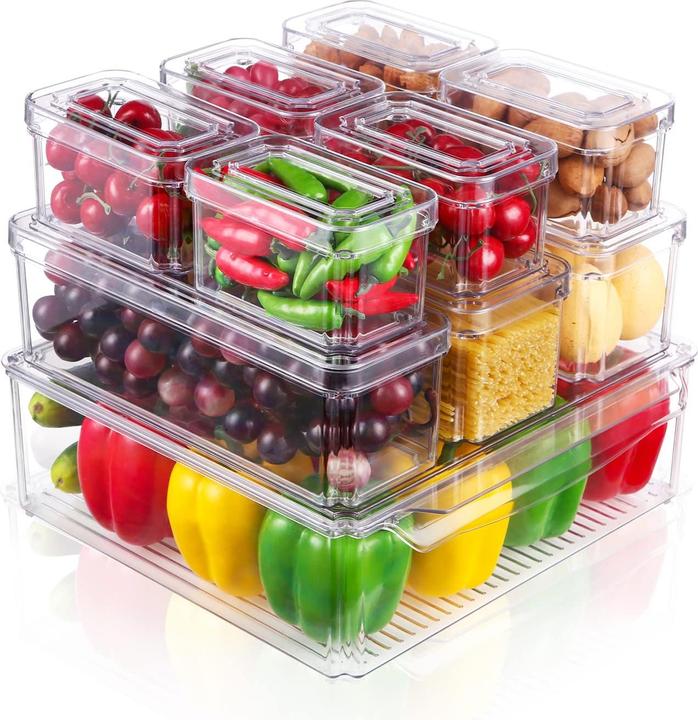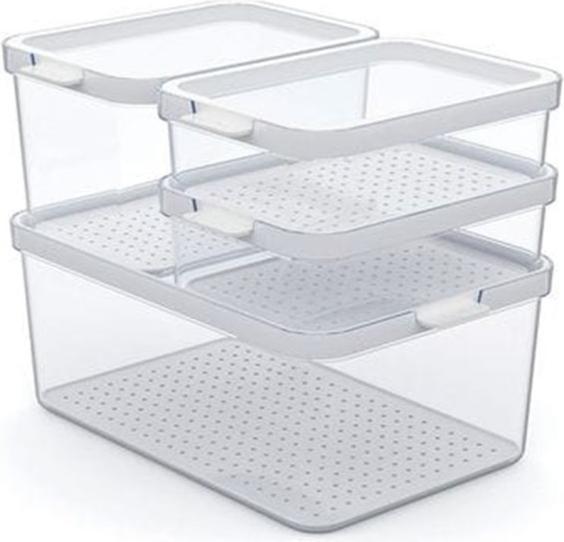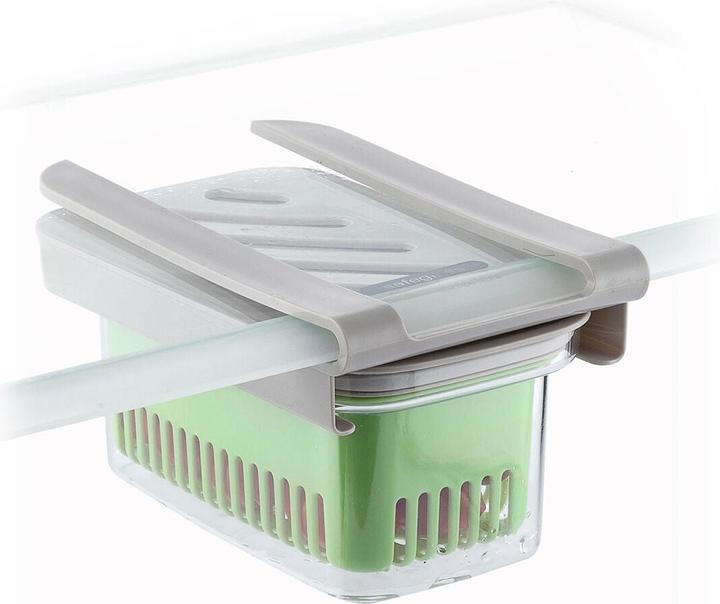

Why you should never store these foods next to each other
Wondering why your fruit and veg go off so quickly? Maybe you’re not storing them properly. Avoid these seven combinations to keep them fresher for longer.
A bag of potatoes I’d recently bought went off within a few days. Not again! I’d stored them next to the onions. After I mentioned this in our Swiss-German food podcast «Uftischt», a friend sent me a message saying, «What an amateur chef move! You should never store onions and potatoes together.»
Fast-forward to 30:00 to hear the part where this is mentioned.
Sure enough, According to an article published in the Süddeutsche Zeitung, onions speed up the ripening of potatoes and vice versa (page in German). In other words, onions and potatoes both go off faster if they’re stored next to each other in the cellar.
Something’s off
There’s also another culprit in the fruit bowl and vegetable basket: ethylene. It’s a gas that some fruit and veg naturally give off. It accelerates both its own ripening process as well as that of surrounding vegetables and fruit close by. That’s what makes a honeydew melon stored next to apples go rotten really quickly.
On the plus side, you can also take advantage of this effect by deliberately placing unripe fruit next to strong ethylene emitters. This is a common method in the banana trade, where green, unripe bananas are hung in containers filled with ethylene gas during transport.
To help you navigate the countless combinations of fruit and veg, I’ve grouped them according to their sensitivity or ethylene-producing traits.
Ethylene-producing fruit and veg
Very strong ethylene producers
- Apples
- Ripe kiwis
- Soft pears
- Apricots
- Nectarines
- Peaches
- Plums
- Ripe avocados
- Tomatoes
Strong ethylene producers
- Melons (e.g. honeydew melons, cantaloupes)
- Papayas
- Mangoes
- Ripe bananas
Weak ethylene producers
- Potatoes
- Leeks
- Spinach
- Cabbage sprouts
- Aubergines
- Various pumpkins
- Zucchinis
- Cucumbers
Particularly sensitive to ethylene
Very sensitive to ethylene
- Broccoli
- Cauliflower
- Cucumbers
- Leaf salads
- Spinach
- Cabbage (white cabbage, red cabbage, Brussels sprouts, Chinese cabbage)
- Carrots (become bitter)
- Asparagus
Sensitive to ethylene
- Berries (raspberries, blueberries)
- Ripe grapes
- Zucchinis
- Various pumpkins
- Sweet potatoes
- Fennel
Slightly sensitive to ethylene
- Potatoes (germinate faster)
- Onions (rot faster)
- Garlic
- Leeks
- Beetroot
- Celery
How much space between foods?
To prevent sensitive food from coming into contact with ethylene, you need to store it separately. In fact, this means storing a fruit bowl containing delicate fruit in another room and using closed containers in the fridge.
Or avoid buying larger quantities and try to eat your fruit and veg straight away. That way, you don’t have to worry about ethylene.
When I flew the family nest over 15 years ago, I suddenly had to cook for myself. But it wasn’t long until this necessity became a virtue. Today, rattling those pots and pans is a fundamental part of my life. I’m a true foodie and devour everything from junk food to star-awarded cuisine. Literally. I eat way too fast.
Interesting facts about products, behind-the-scenes looks at manufacturers and deep-dives on interesting people.
Show all



